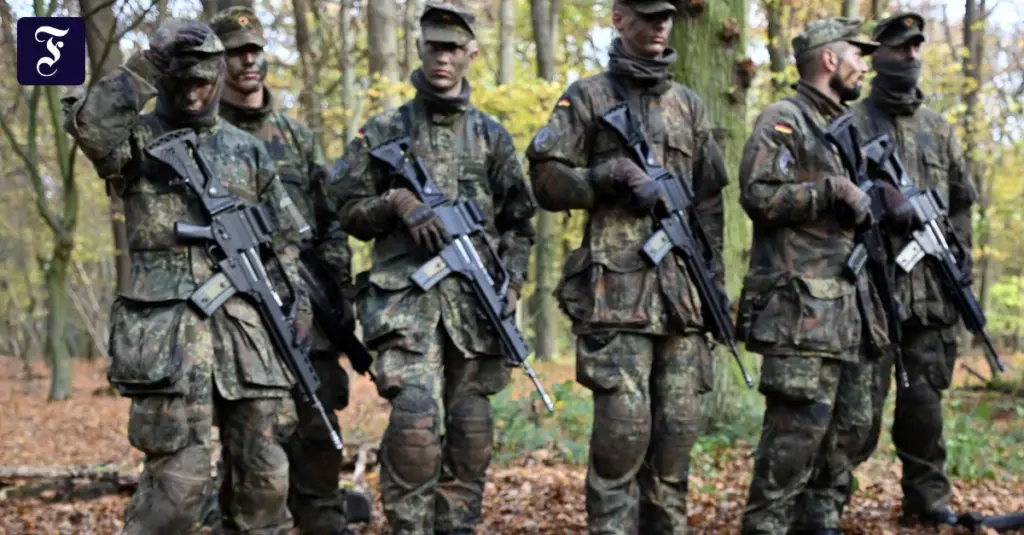
The majority of German society clearly rejected the Federal Republic’s military leadership role in Europe. In a survey conducted by the Forsa Institute on behalf of the Körber Foundation, 61 percent of participants answered “probably not” and only 38 percent answered “probably yes.” At 75 percent, rejection was particularly high in eastern Germany; in the western region the figure reached 58 percent.
Greater international military involvement was clearly rejected
Society in this country is conflicted over the question of whether Germany should take more responsibility and be more involved in international crises – or, conversely, should be more restrained. As many as 48 percent chose greater commitment, and 43 percent chose to be more restrained. Here too there were clear differences between East and West Germany. In the West region, 51 percent support greater commitment, while in the East only 35 percent. On the other hand, 52 percent of East Germans voted for more restraint, while in West Germany only 42 percent voted.
If there is a greater commitment, then from the perspective of the majority of society, this must be diplomatic. A total of 71 percent (West) and 84 percent (East) favored greater diplomatic deployment, while only 19 percent (West) and 7 percent (East) favored more military engagement.
Relations with the US are largely considered poor
The survey shows a significant decline in sentiment towards the US since President Donald Trump took office. Three-quarters of those surveyed (73 percent) rated relations with the US as poor. A year earlier – when Joe Biden was still US President – almost the same number of people (75 percent) rated relations as good. When asked about Germany’s most important foreign policy partner, the United States ranked at 26 percent, well behind France, which had 46 percent.
Trust in the US in certain policy areas remains low. For example, only 38 percent of Germans view the US as a partner in dealing with the war in Ukraine, while 58 percent consider the US not a partner. When dealing with China, 31 percent consider the US a partner, but 63 percent do not. And when it comes to promoting free trade, 21 percent rely on the United States, but 76 percent do not.
A major increase in defense spending was approved
72 percent of those surveyed think it is true that Germany wants to double its defense spending in the next ten years. 27 percent thought this was fundamentally wrong. The approval rating of 56 percent in East Germany is much lower than in West Germany, where 75 percent support a significant increase in defense spending.
The majority (82 percent) of those surveyed opposed Germany acquiring its own nuclear weapons. The rejection here was almost the same in West and East Germany.
In a representative survey according to the Körber Foundation, Forsa surveyed 1,503 eligible voters in Germany between September 15 and 26.





